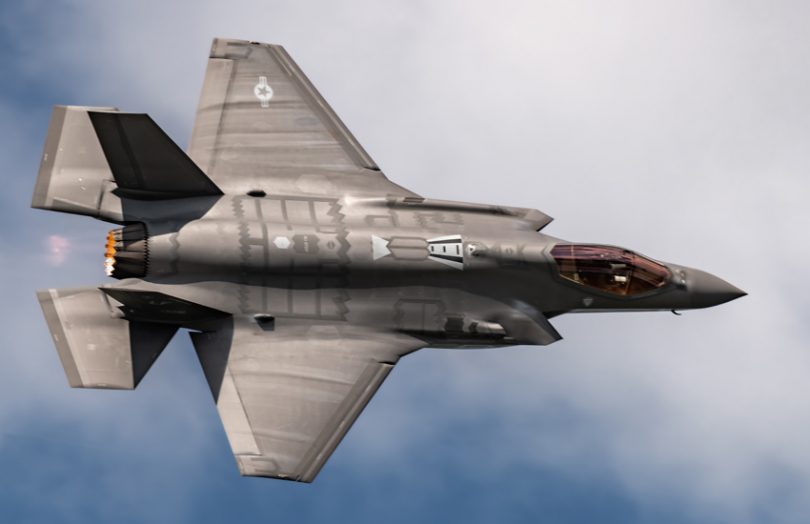This August, global consultancy firm PriceWaterhouseCoopers (PWC) released a report on the advantages of using blockchain in the complex supply chain for defense assets. The paper highlights three uses cases: to increase transparency, to validate suppliers, and to strengthen cybersecurity.
PWC used F-35 fighter jets as an example of the intricacies of the supply chain. Each jet has around 300,000 components manufactured by over 1,900 suppliers. Some individual parts alone require components from multiple suppliers. The more levels in a supply chain, the more disposed it is to disruptions and cyberattacks. Hence, PWC recommends more importance should be given to supplier risk management.
Along these lines, in a controversial article last year, Bloomberg’s “The Big Hack” claimed that some computer motherboards produced by Silicon Valley firm Supermicro had an additional chip that was not part of the original design. According to the report, the microchip allegedly “allowed the attackers to create a stealth doorway into any network that included altered machines.” Both governments and companies face a risk of snooping from any potentially compromised parts. Given the sensitivity of the information contained within the weapons systems, hacks of this kind can be extremely dangerous.
PWC stressed blockchain advantages, including the increase of supply chain efficiency and transparency. Blockchain can validate every step of a components’ life-cycle. Its transparency features can extend to all tiers of the supplier network as opposed to being siloed for a single part. The technology can also manage the identities and qualifications of those involved in the supply chain, a particularly useful feature when other countries are responsible for some parts of a sensitive weapons system.
Blockchain can greatly help manufacturers who have accepted sustainment contracts, like fighter jet manufacturer Lockheed Martin for the F-35. This is where they are responsible for supporting and sustaining a system even once it is in use, which can lead to huge financial consequences. Blockchain can greatly help such manufacturers by proactively identifying parts shortages, avoiding unnecessary costs, and improving operational performance and efficiency.
The U.S. Department of Defense (DOD) is clearly aware of blockchain’s potential, awarding multiple contracts to blockchain firms over the past year. The U.S. Navy awarded blockchain firm SIMBA Chain a $9.5 million contract to deploy a blockchain-based messaging and transaction platform. Months later, The U.S. Air Force awarded the same firm $1.5 million for the second phase of their parts traceability project.
‘Blockchain is no longer an untested, novel solution; it has the potential to increase transparency and performance… Given that potential, the only question is which OEM will be bold enough to seize the initiative’, says the PWC report.







